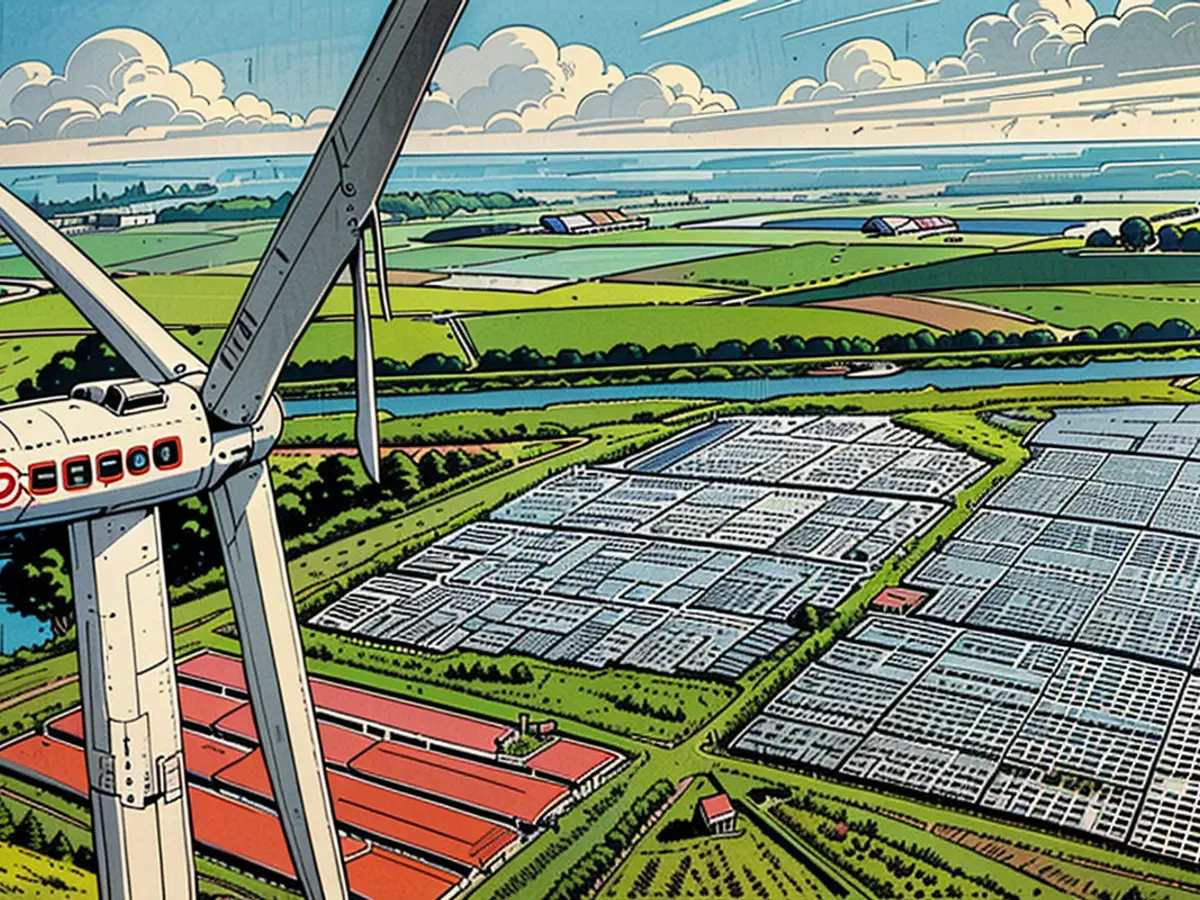Decreased electricity costs emerge in the new year, yet not for all individuals
The German Regulatory Authority for Network Industries is planning to cut electricity grid usage fees in regions with increased production of renewable energy sources. The move aims to support areas heavily involved in wind and solar power, but prior to this reduction, there will be a temporary surcharge imposed on all consumers.
anticipated drop in energy grid fees for consumers in regions such as Schleswig-Holstein, Mecklenburg-Vorpommern, and Brandenburg, as well as Bavaria, could lead to annual savings of up to 200 euros, according to the German Regulatory Authority for Network Industries located in Bonn. The authority's head, Klaus Müller, emphasized that energy suppliers must pass on these savings to their customers.
The drop in fees is due to a reform in network charges aimed at more equitably distributing the costs of grid expansion in Germany. At present, network fees in areas with high renewable energy production can be significantly higher as the expenses for grid expansion are often passed on to consumers in those regions. The new charging system will come into effect on January 1, 2025.
The regulatory authority provided illustrative examples of potential savings: For a typical household with a yearly consumption of 3500 kilowatt-hours, using the Edis Netz GmbH network in Brandenburg and Mecklenburg-Vorpommern, network charges could decrease by around 100 euros compared to the previous year. In the Wemag Netz GmbH network in Mecklenburg-Vorpommern, the savings would amount to over 200 euros. A typical household in the Schleswig-Holstein Netz AG network could save around 150 euros, while an average household in the Bayernwerk Netz GmbH network could save around 43 euros.
A total of 178 companies will be positively impacted by this reform, primarily situated in the north and eastern regions of the country. All network operators were required to declare by last Tuesday whether they were significantly impacted by the proliferation of renewable energy plants, as stated by the regulatory authority. This assessment was based on a key figure connecting the renewable energy production capacity attached to the grid to the network's load within the area.
The relieved network operators will receive financial support to cover additional burdens. These aid payments will be evenly distributed nationwide through a surcharge across all electricity consumer prices. This surcharge, set to be announced on October 25, could ensure that all electricity consumers contribute fairly to the costs, according to the regulatory authority.
The anticipated drop in energy grid fees also includes regions like Bavaria, potentially offering annual savings of up to 200 euros for consumers. Following the implementation of this reform on January 1, 2025, network charges in Bavaria's Bayernwerk Netz GmbH network could decrease, offering savings to average households.








